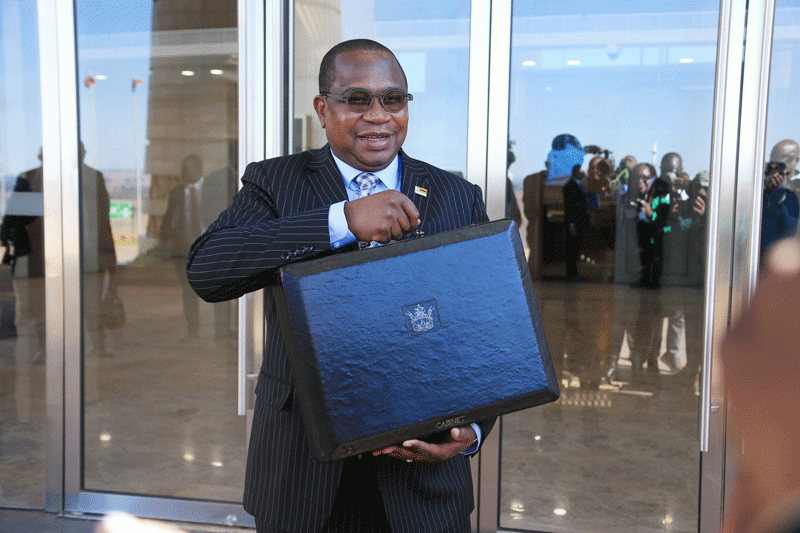THREE distinct categories of people benefitted from the land reform exercise in Zimbabwe.
This taxonomy has important repercussions for the country’s long-term socio-economic prospects.
The first group is what I will call the desperadoes. This group of people originated in the rural areas and were largely subsistence farmers.
Generally speaking, they had nothing to their names.
The offer of land in the lush hitherto commercial farming areas presented a glimmer of hope to their sorry socio-economic prospects.
They took the offer of land as just another shot in the dark with nothing to lose by going on to the farms and nothing to gain by staying in their rural areas.
They followed the miniscule hope that maybe things could be better elsewhere.
Their turn at farming is a desperate plea to the land for sustenance.
The second group is that of the chancers, hustlers and speculators; those looking for a quick buck.
These are the people who will snatch at any opportunity that hints of a favourable economic return especially on a zero investment.
They figured that there was some money to be made on the farms and given that these farms were obtained for free, the feeling was that they had nothing to lose.
And above all they felt that there had to be a way of making money off the land.
They could farm and if they failed, they could sell firewood, mould bricks or rent the farms out.
This group originated from the cities mostly.
To them land is a way of funding their consumerist lifestyle.
It is an entirely new class of farmer — the sophisticated — commuting hip farmer whose dream is to shop in Dubai, holiday in the Maldives and send their children to Peterhouse or St Johns College.
Their endeavour though rushed, is a deliberate and systematic rape of the land.
The third class is made up of the genuine farmers. These are people who love and respect the land.
People to whom farming is almost a lovemaking with the land.
This is an exceptional class of people unfortunately not enough of them benefitted from the land reform programme because the chancers got in before them.
You find these people permanently settled on their farms working them through an understanding of the land, the weather, the crops and the farm workers.
Farming to them is primarily a way of life than a means of livelihood.
This, therefore, is a brief taxonomy of our farmers. What does it portend for the country?
It is fair to say that the land reform exercise is a socioeconomic crisis in the making.
Our resettled farmers, we are given to understand, have been given 99-year leases and not titles to the land.
The question is what happens to those farms when, after, those 99 years run out or the leasee dies.
We must be mindful of the fact that farming or the rural lifestyle is not ideal for an average Zimbabwean.
The majority of our rural population is so by default, there is no real alternative for them.
This applies to the older generations, but more so to their offspring who dream about living and working in the towns but find the opportunities elusive.
This is borne out by the preponderance of rural-urban migration versus urban-rural migration.
Travelling through the average rural area, one is appalled by the number of abandoned homesteads, where either the parents have died and the children are in the cities or diaspora or the parents themselves have moved out.
There is no remaining substantive attachment by the people to the land.
Today we have an older first generation on the farms.
Will their children have the same economic, emotional and political attachment to the land as their parents?
Mind you this is land whose title is legally a grey area.
It is unlikely that the land reform exercise without Zanu PF political pressure can stand up to legal challenge 50 years from now.
All these doubts make these farms an extremely unattractive emotional and financial investment for their second generation inheritors.
Added to this is the fact that most of the beneficiaries of the land reform are powerful and wealthy and are busy sending their children to the diaspora.
Will these children on the passing on of their parents want to leave their comfortable lives either in the cities’ plush suburbs or the diaspora to come back and inherit these farms and their dubious title? This is extremely doubtful.
The children of most of these farmers have no real attachment to the land.
Their parents on the whole were on the farms as hustlers and speculators looking for a quick and easy buck.
They are more likely to be even worse as far as their distaste for the provincial lifestyle is concerned.
It is to be expected, therefore, that most of these farms will at some point be deserted by the original beneficiaries.
Into this ownership vacuum will probably step various desperate communal farmers, a general disorder and chaos in the farming areas.
When these farms belonged to the whites the question of succession was moot.
This is because they were a personal possession that one could dispose of for a profit in the last resort.
Generally speaking, the farmers loved their way of life and brought their children up likewise.
These children would only be too honoured to inherit the family farm and invest in it.
If there were no heirs it could always be sold. A farm, therefore, would never lie derelict.
Today, all commercial farming land belongs to government. This is another way of saying it belongs to nobody, and nobody cares about or for it.
We are, therefore, likely to see a lot of farms lying derelict going forward, ultimately agricultural productivity will decrease in the long term.
The government, therefore, is faced with a challenge on the farms.
The issue is not only about title to but also securing the long-term attachment to the land.
It is the emotional attachment that guarantees investment on the land, its development, productivity and continuity.
It is a generally accepted fact that the land reform exercise had nothing to do with land redistribution but was about politics, self-destructive politics at that.
Zanu PF being Zanu PF did not care about the long term and it still does not.
All that those in power care about is remaining in power and relinquishing it if need be on their own terms.
This partially explains the 99-year leases, none of those in power at present will be alive when those leases expire, it will be someone else's poisoned chalice to drink from.
- Roger Takundwa is a social commentator. He writes here in his own personal capacity.





